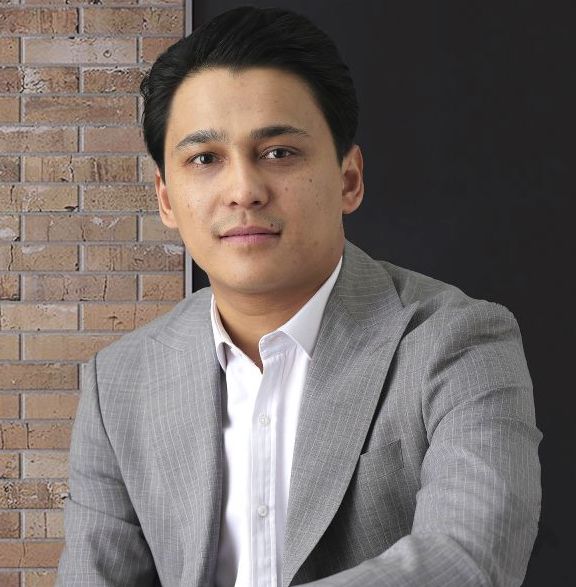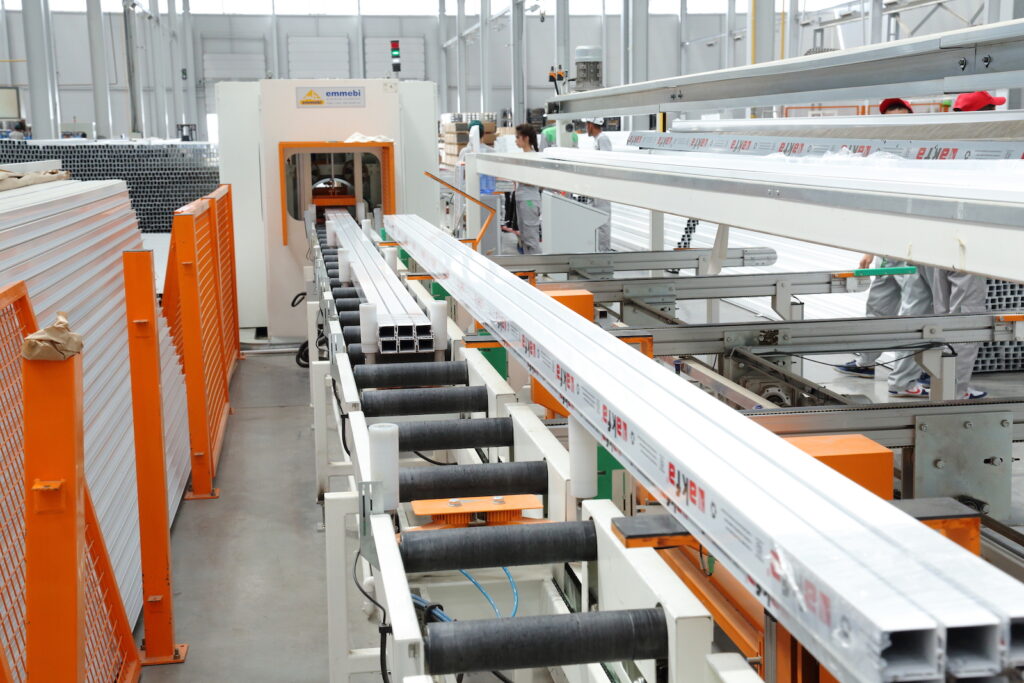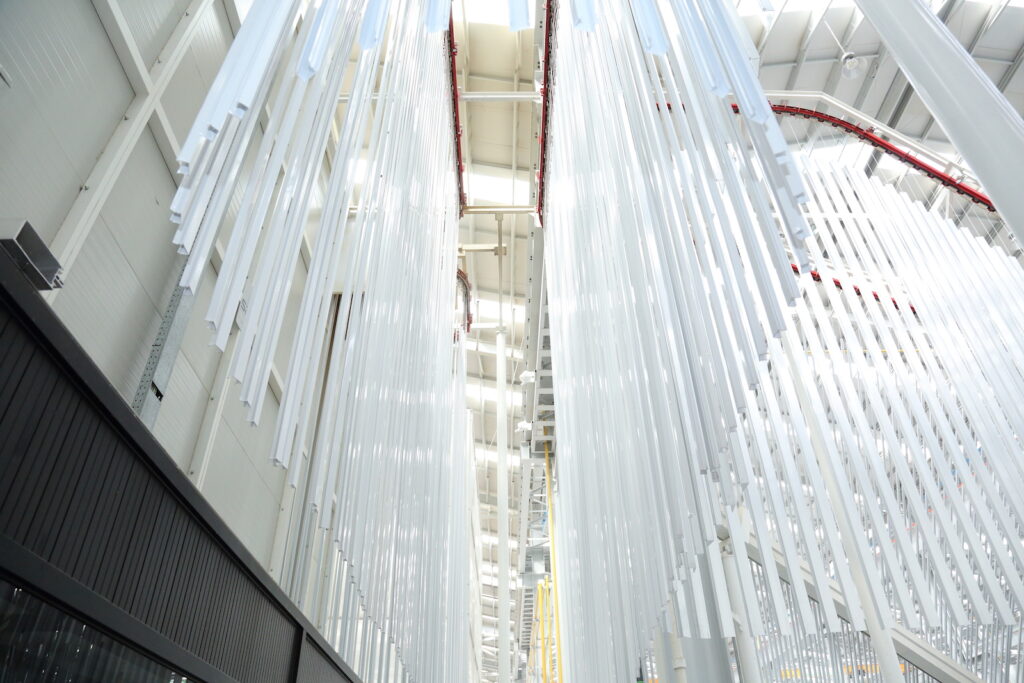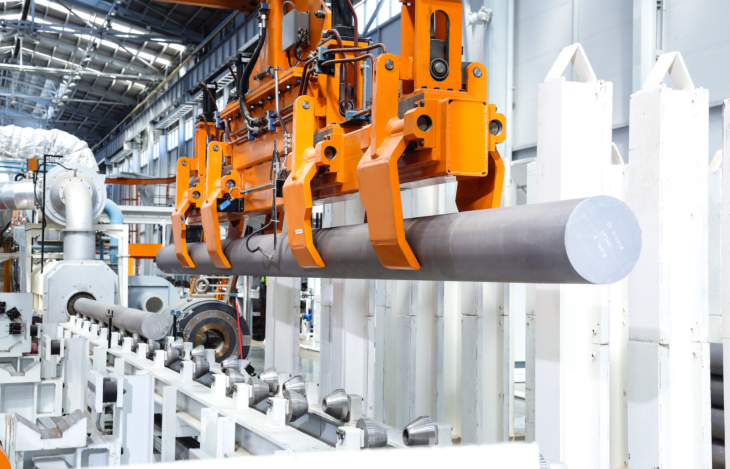Benkam Alu Extrusions, owned by AKFA Group, is one of the major manufacturers of aluminum profiles in Central Asia. Located in Tashkent, Uzbekistan, the company recently announced that it is launching a multi-year expansion project, which will more than double its aluminum extrusion production capabilities. This expansion is a part of the company’s overall strategic goals, which include achieving an annual production output of 100,000 tonnes of extruded aluminum products by 2025 and becoming one of the top ten global manufacturers of aluminum.

This expansion project is largely driven by expected increases in demand in both the local and global markets. “According to our marketing research, the average annual increase in aluminum consumption in the world is 5-6%,” said Kamran Gulamov (Figure 1), CEO and managing director of Benkam Alu Extrusions and CEO of AKFA Group. “The market continues to show a high rate of annual growth due to the pace of development in transportation, automotive, building and construction, and electrical engineering. This stable growth makes it an excellent time to increase our production capacity, as we are directly involved in the global aluminum market, exporting aluminum profiles to more than 13 countries around the world.”
Company History
AKFA Group was founded by Jahongir Ortiqhojaev in 2000. The company later started its first aluminum production line in 2002, followed by PVC profile production capabilities a year later. Both operations manufacture profiles for windows and doors. AKFA further expanded into the construction market in 2014, when it began making aluminum composite panels for interior and façade system solutions. Currently, AKFA operates ten plants, all specialized in various types of production based on modern technologies. The company is one of the largest holdings in Central Asia and the largest manufacturer and exporter of aluminum and plastic profiles in Uzbekistan.
“Having made a breakthrough in the Uzbekistan construction materials industry, AKFA continues to strengthen its position locally and globally,” said Gulamov. “Now our company is able to offer its customers a variety of products of the highest quality—from iconic window profiles to custom-designed façade solutions. We supply a complete ecosystem for building structures.”
In order to meet increased demand for aluminum extruded products, AKFA launched Benkam Alu Extrusions in 2015, with all of the company’s aluminum manufacturing operations now falling under the new business. The aim of the aluminum operation is to be a reliable partner to their customers by providing a full range of services, including extrusion, anodizing, sublimation, and machining of aluminum profiles. Benkam produces aluminum extruded profiles for a variety of sectors, including building and construction, transport, solar power systems, infrastructure, medical devices, electrical systems, and more. The company supplies its aluminum profiles to local and global markets, including Europe, Central Asia, North America, and other regions.
Current Operations
Benkam’s aluminum operations are housed in a 116,000 sq m facility located in the Navoi FEZ territory. The company runs six state-of-the-art press lines capable of supplying a variety of shapes for different industries. Two of the lines were supplied by Presezzi in Italy, including a 7 inch, 2,000 ton press and a 9/11 inch, 4,000 ton press. Four of the lines were supplied by SKM Co., Ltd. in South Korea, including a 4 inch, 1,000 ton press; a 5 inch, 1,000 ton press; and two 7 inch, 2,000 ton presses. The company extrudes profiles not only in common standard alloys (6060, 6063, and 6082), but also works with customers to improve specific alloys in order to meet their requirements.
Each of these advanced extrusion press lines is outfitted with an OMAV handling system, including a billet heater (furnace and saw), a runout table with an intensive profile cooling station, a profile stretcher, and a finishing saw. The extrusion lines also include aging ovens from Sistem Makina in Turkey. The production chain is rounded out with an automated packing system from Italian company emmebi (Figure 2).

In addition to the production of aluminum profiles, Benkam also offers finishing operations, including surface treatment and fabrication. The company’s surface treatment capabilities include anodizing, vertical powder coating, and sublimation. The anodizing area is able to process profiles up to 7,500 mm, providing anodic coating layers ranging from 5-26 µm. Colors range from natural, golden, champagne, brown, and bronze to almost black.
For its vertical powder coating operations, Benkam uses advanced technology supplied by SKM in South Korea and SAT in Italy (Figure 3). These lines are fully automated and use high quality paint and raw materials provided by AkzoNobel, Pulver, TIGER, PPG, and others.

The sublimation line provided by Sefitalia in Italy is a digital printing process, in which specialized inks are heated and then transferred onto the aluminum. The process is able to produce the same effect as wood grain, marble, granite, and other decorative effects.
Benkam is also able to deliver custom aluminum extrusion profiles with high quality fabrications. The company’s finishing and fabrication capabilities include cut-off and cut-out work, deburring, joint and surface machining preparation for welding, weld dressing, fine grinding, texturing, and polishing.
Safety is a primary focus of the company. Therefore, all of the equipment is outfitted with safety systems, such as protective fences, mouth protection on the presses, and sensors in the extrusion area that disable the equipment when a person is in a dangerous area. The facility is also equipped with automatic fire protection system and a signal button in each building in case of an emergency. “We put the safety and the health of our employees first,” said Gulamov. “In addition to safety systems, our company also provides all personnel with personal protective equipment.”
Other major areas of concern are quality and sustainability. The company maintains quality compliance according to international standards, including ISO 9001: 2009. Achieving a high level of quality is a priority for meeting the requirements and expectations of customers.
One of the company’s missions is to decrease its environmental impact by reducing emissions, increasing the use of recycled material, and focusing on non-waste production. Therefore, the company has developed an environmental management system in accordance with ISO 14001: 2005. About 30% of all the aluminum extrusions are made of recycled post-consumer aluminum scrap, and the company is working to increase the use of recycled aluminum to 60%. When primary aluminum is required, the company sources low-carbon billet from UC Rusal in Russia. “We are working to reduce our carbon emission footprint and manufacture carbon-free aluminum extruded profiles and components in the near future,” said Gulamov. “We want to build not only a modern company, but also an environmentally responsible society.”
Massive Expansion
Recognizing increases in demand for the use of aluminum in more industries, Benkam plans to complete a massive expansion project at its facility in the Navoi FEZ territory. The company will be putting into operation an additional ten extrusion lines, with the work to be completed in several stages over the next four to five years. Upon completion of the project, Benkam will produce various types of customized profiles for industries such as architectural, industrial, and transport.
Much of the increased demand is expected to come from the Commonwealth of Independent States (CIS), which is comprised of Azerbaijan, Armenia, Belarus, Kazakhstan, Kyrgyzstan, Moldova, Russia, Tajikistan, Turkmenistan, and Uzbekistan. Additional demand is expected from the European market. “The new plant is strategically located and has easy access to neighboring countries and fast logistic solutions,” explained Gulamov. “By cooperating with global logistic companies we can deliver products and services to any corner of the world in the shortest possible time by land or sea.”
The first phase of the Benkam expansion project will kick off in December of this year, with four new extrusion presses to be installed in 2022. Presezzi Extrusion Group will supply all four presses—three 2,000 ton presses and a 4,000 ton press—as well as auxiliary equipment and handling systems, such as log handling and preparation, pullers, stretchers, and sawing equipment. In addition, the press lines will be outfitted with aging ovens from Sistem Makina and a packaging line from CMF Moretto in Italy. The lines will be able to produce profiles up to 14 m in length.
The extrusion lines will feature a high level of automation, including automatic die storage, buffer storage for unpainted profiles, basket return system, control systems for production process parameters, etc. The implementation of automation will enable Benkam to ensure the efficiency of equipment performance, eliminate errors caused by human operators, and increase the level of safety within the plant.
Over the next few years, the company will also begin exploring new technologies. For example, the company plans to utilize liquid nitrogen in the die tooling in order to keep the extrusion of aluminum profiles within the desired temperature, which can speed up the production process by up to 30%. Furthermore, the company plans to introduce infrared temperature measurement technology in order to control the billet temperature as it enters the die. This will help to improve die life and productivity over time, monitor the heat treat cycle furnace performance, and overcome possible production issues before they occur.
Following the first stage of expansion, the company will sequentially put into operation an additional six new extrusion lines, including four 2,000 ton presses, a 4,000 ton press, and a 6,000 ton press. Including both existing and new equipment, Benkam will operate a total of 16 extrusion lines once its massive expansion project is completed.
As a part of the overall project, Benkam will also be expanding its fabrication and finishing operations in order to meet customer requirements. This includes the acquisition and installation of automated paint lines from Euroimpianti in Italy, a sublimation line from Sefitalia, and thermal break equipment from Müller Technologies in Switzerland. Additional finishing capabilities may also be added as the project continues.
“We are completing the plant primarily with equipment from European companies, as it meets our main criteria, including high degree of automation, long service life, quality, after sales service, minimal energy consumption, and so on,” noted Gulamov. “Preference was also given to manufacturers with whom we have worked previously, as they have proven themselves well.”
Conclusion
Benkam has built up its operations to be a complete ecosystem, providing not only extruded aluminum profiles, but also customized solutions through fabrication and surface finishing. With the launch of its major expansion project, the company is now shaping itself into a major player in the worldwide aluminum extrusion industry. “We are constantly extending our knowledge in the aluminum industry and strive to find new solutions for our customers and partners,” said Gulamov. “In order to remain competitive in the market, we have to develop strategic solutions and modernize and optimize existing production. We work to follow trends and implement new technologies into our production, which gives us a competitive edge and allows us to offer new products and services.”
Editor’s Note: This article first appeared in the April 2021 issue of Light Metal Age. To receive the current issue, please subscribe.

